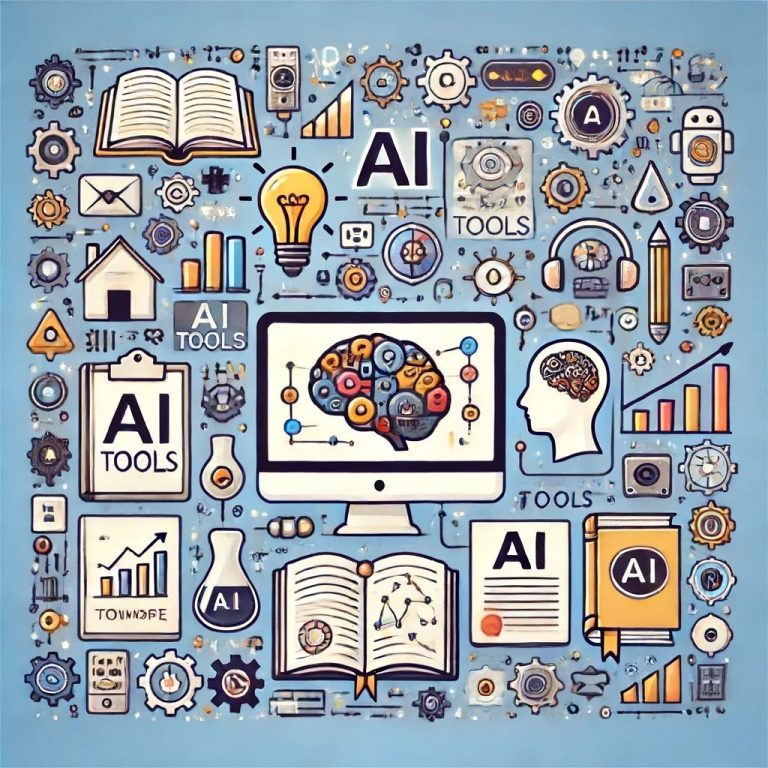Hello there!! I’m Fahmi, I used to be an oiler in power, mining and oil-gas industries greater than 15 years, and now I change my profession as an AI/ML and information science geeks fanatic for digital nomad life-style: time freedom to develop into monetary freedom. It’s my honor share with you. Immediately, we’ll dive into mastering AI instruments with a complete information for learners. Let’s get began!
Beginning your journey in Synthetic Intelligence (AI) might be overwhelming with the plethora of instruments out there. This information will enable you navigate by means of among the important AI instruments and sources that learners can use to kickstart their AI studying journey.
1. Jupyter Pocket book
Jupyter Pocket book is an open-source internet utility that lets you create and share paperwork containing dwell code, equations, visualizations, and narrative textual content. It’s broadly used for information cleansing, transformation, visualization, and machine studying.
Reference: In keeping with IBM, Jupyter Pocket book is a basic device for information scientists and AI practitioners, enabling seamless collaboration and experimentation.
2. Google Colab
Google Colab is a free cloud service that helps Python and gives free entry to GPUs. It’s an important platform for learners to run and check their machine studying fashions while not having a strong native machine.
Anecdote: A report by McKinsey highlights that Google Colab is broadly utilized in academic settings as a consequence of its accessibility and sturdy computing energy.
3. TensorFlow
TensorFlow is an open-source machine studying framework developed by Google. It’s used for a variety of duties, from coaching machine studying fashions to deploying them in manufacturing.
Instance: Many AI professionals begin with TensorFlow for its intensive documentation and neighborhood help, making it simpler to study and implement machine studying fashions.
4. PyTorch
Developed by Fb’s AI Analysis lab, PyTorch is thought for its flexibility and ease of use, significantly within the analysis neighborhood. It’s favored for growing deep studying fashions.
Reference: Accenture notes that PyTorch’s dynamic computational graph and ease make it a well-liked alternative amongst AI researchers and builders.
5. Scikit-learn
Scikit-learn is a Python library that gives easy and environment friendly instruments for information mining and information evaluation. It’s constructed on NumPy, SciPy, and matplotlib and is right for implementing machine studying algorithms.
Anecdote: In keeping with a examine by Deloitte, Scikit-learn is a go-to library for a lot of information scientists as a consequence of its complete suite of machine studying algorithms.
6. Keras
Keras is a high-level neural networks API that runs on high of TensorFlow. It’s user-friendly, modular, and extensible, making it excellent for learners who wish to experiment with deep studying fashions.
Instance: Newbies typically choose Keras for its easy method to constructing neural networks, as highlighted by IBM.
7. Anaconda
Anaconda is a distribution of Python and R for scientific computing and information science. It simplifies package deal administration and deployment, making it simpler to put in and handle information science libraries and dependencies.
Reference: The World Financial Discussion board recommends Anaconda for learners as a consequence of its complete suite of instruments and ease of use.
8. Git and GitHub
Git is a model management system that helps you monitor adjustments in your code, whereas GitHub is a platform for internet hosting and sharing your repositories. Each are important for collaborative initiatives and managing your codebase.
Anecdote: Many AI initiatives are hosted on GitHub, offering a platform for collaboration and sharing, as famous by Accenture.
9. Tableau
Tableau is a strong information visualization device that helps you create interactive and shareable dashboards. It’s nice for exploring information and presenting your findings visually.
Instance: Knowledge visualization is essential in AI initiatives, and instruments like Tableau are broadly used to speak insights successfully, as highlighted by Forbes.
10. Kaggle
Kaggle is a platform for information science competitions that gives datasets and coding environments to follow your expertise. It’s an important place to study, compete, and collaborate with different information scientists.
Reference: Kaggle is very really useful by McKinsey for learners seeking to achieve hands-on expertise and construct their portfolios.
